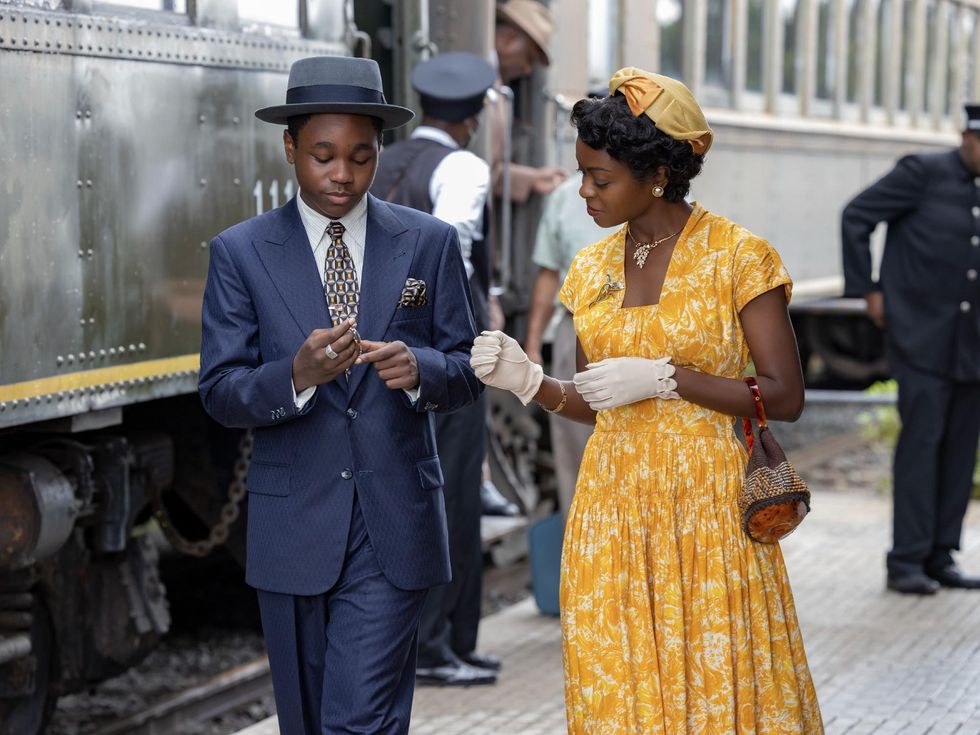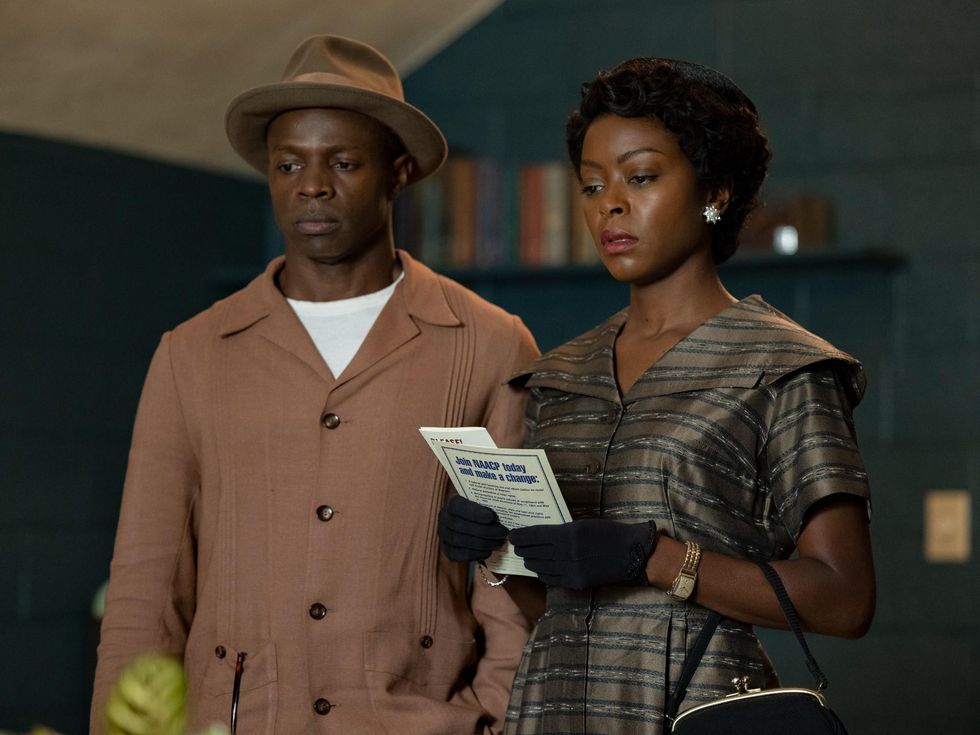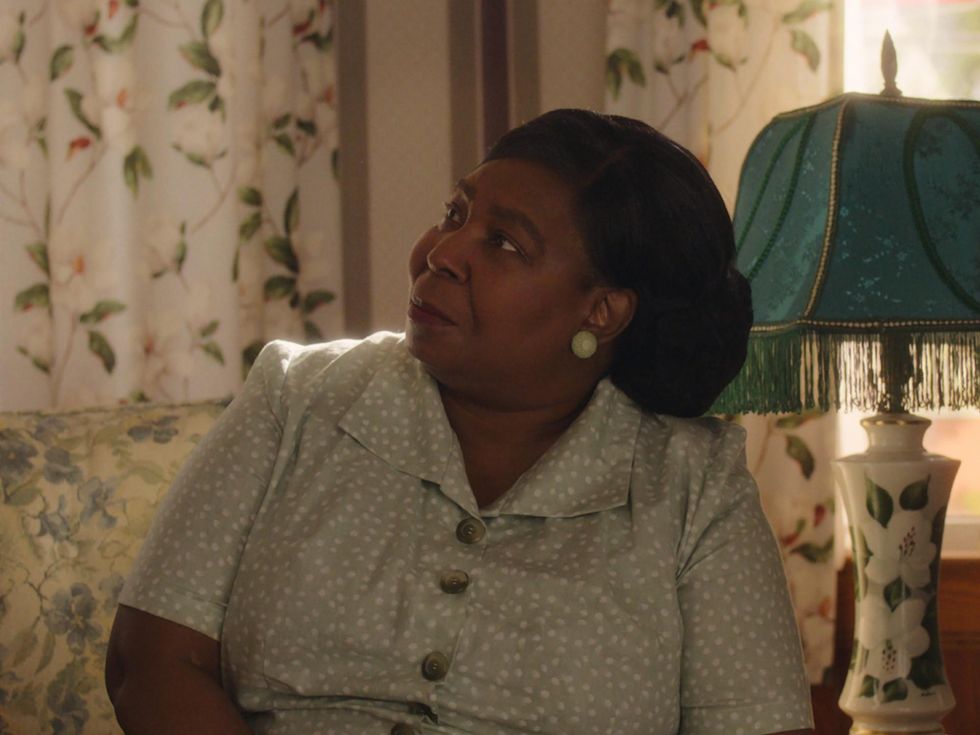Movie review
Horrors of racial violence and a mother's love power 'Till'
The uptick in awareness over violence perpetrated on Black people in general, and Black men in particular, in recent years has served to underscore the tragically long history of racial violence in the United States. Though far from the first such incident, the murder of Emmett Till in 1955 has been an infamous example of such hatred, the story of which is laid out in the new film Till.
Emmett (Jalyn Hall), nicknamed Bo by his family, was sent by his single mother, Mamie Till-Mobley (Danielle Deadwyler) to visit relatives in Mississippi when he was 14 years old. Portrayed in the film as an affable and outgoing kid, Emmett is warned by his mom that his sociable personality would not necessarily be as well-received in the South as it is in Chicago, especially among white people.
Sure enough, he runs afoul of a white female shopkeeper, whose husband and a friend soon track him down, kidnap him, and murder him. This horrifying moment would be the main part of many other films, but what happened after is what this film focuses on most. Mamie, despite her grief, uses Emmett’s awful state in death to show the world what racial hatred truly looks like, and dedicates herself to confronting those who killed him in court despite the personal risk.
Directed by Chinonye Chukwu and written by Chukwu, Michael Reilly, and Keith Beauchamp, the film is a tough but essential watch for those willing to reckon with the country’s sordid history. As the world has already witnessed too much violence toward Black people, Chukwu keeps Emmett’s actual murder off-screen. But, just as Mamie did, she does not shy away from showing his ravaged corpse, lingering on his bloated body and face in a series of scenes.
Some may argue that the amount of time spent looking at the horror inflicted on Emmett is too much, but that’s exactly the point. The reason Emmett Till’s name is so well-known is because Mamie made it her goal to get that appalling visual out to the world, hoping against hope that in doing so, some kind of change would occur. As Black people continue to be killed or abused at a shocking rate, showing the result remains as urgent today as it was 67 years ago.
Perhaps acknowledging the overwhelming power of those scenes, Chukwu seems to pull back on the emotion in the latter half of the movie. Even if you don’t know the history of the trial of the two men accused of the murder, the verdict will be unsurprising given the time and location in which it took place. Instead, it’s the stoic nature of Mamie and civil rights activist Medgar Evers (Tosin Cole), and the support of the Black community overall, that carries the film to its righteous conclusion.
Deadwyler is tasked with a difficult performance, and she manages to maintain a good balance between being despondent and being overwrought. She has a brightness that keeps the film from becoming a crushingly depressing dirge. She’s also aided by strong supporting performances from Cole, Sean Patrick Thomas, Whoopi Goldberg, and John Douglas Thompson.
The story told in Till happened a long time ago, but the lessons to be learned from it still apply today. The fight for civil rights endures, and as long as there is racial injustice in the world, films like this will need to still be made.
---
Till is now playing in theaters.



